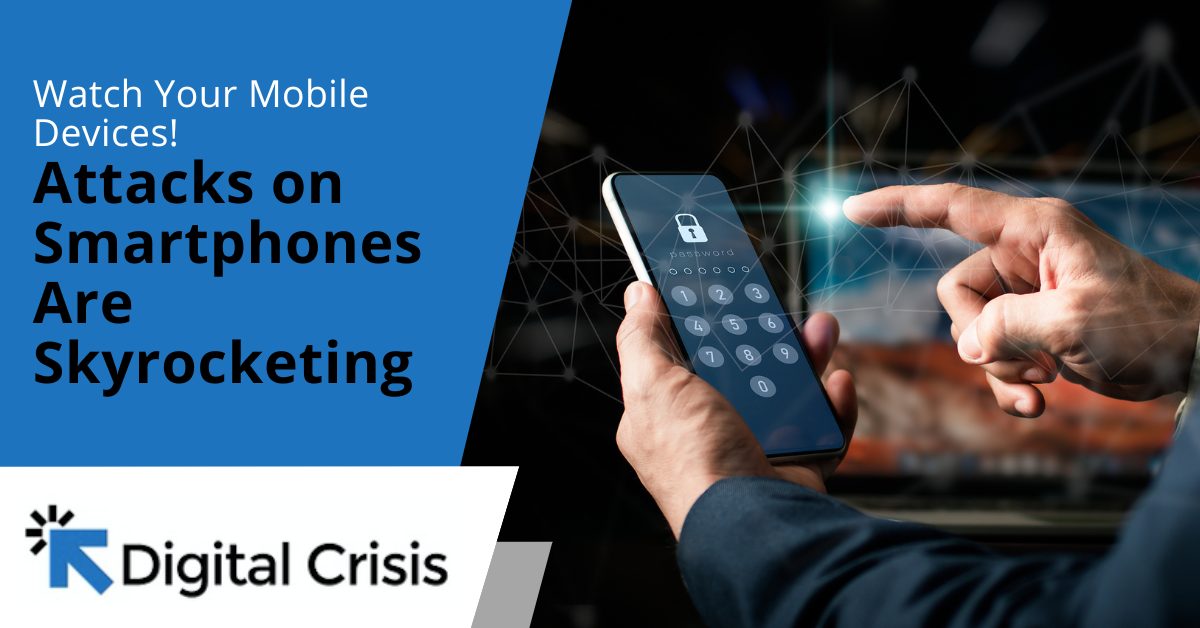
We use our smartphones for almost everything, and cybercriminals are aware of this. They are looking for ways to exploit it. According to recent research, the volume of malware attacks targeting mobile devices has skyrocketed this year.
Typically, the cybercriminals behind these attacks have a common goal: obtaining user-sensitive information; examples are bank details, passwords, email addresses, and usernames. They might potentially get access to the device via remote code execution. It's disturbing to think that over 47% of smartphone users have had their smartphones serve as a channel for unknown hackers to invade privacy.
Users can protect themselves and their mobile devices from phishing attacks by avoiding careless URL-clicking. If you receive a text message or an email alert claiming to be from a certain company, it's generally better to visit the company's actual website via your browser and log in from there rather than clicking on the unverified link.
Hackers are adapting to the widespread usage of gadgets. They also like them for many fraudulent and criminal reasons, including the fact that mobile devices are built in such a way that they are ideal for malicious antics. The following are other reasons why cybercriminals target smartphones;
Smartphone graphical user interfaces encourage action - reply, accept, send, like, etc. - and are meant to let users respond swiftly to a request. These hasty decisions, however, might be costly since users may not sense any danger from them.
Smartphone screen sizes make it more challenging to see email headers, where a fake address may be discovered. It's also difficult to see many sites without switching or clicking links. This increases the likelihood of mistakenly clicking on anything dangerous. Phishing attempts on mobile devices skyrocketed during the pandemic.
When people are reading messages on their smartphones, they may also be using other devices. This is especially true if they are working remotely. Furthermore, users may be operating many apps simultaneously and switching back and forth between them. This lack of focus may cause them to unknowingly open doors to hackers.
Mobile device security risks are rising in number and scope. Users must understand common threats and prepare for the next generation of malicious activity to secure their devices and data. A solid internet security solution should provide comprehensive coverage that extends beyond PCs and laptops to safeguard smartphones. The following tips will help smartphone users in protecting themselves from attacks.
Many apps would often request access to a phone's camera and collection of photos before allowing you to install them. It is best to avoid such installation unless you trust the application's developer, as your device can be vulnerable to external attacks and theft of sensitive data. Check that the permissions granted correspond to the objective of the app you intend to install.
When connecting to a hotel's free Wi-Fi, such as public Wi-Fi at a restaurant or shopping mall, it’s advisable to ask the employees what the official free Wi-Fi network's name is. Cyber attackers may set up fake access points with network names similar to legitimate Wi-Fi networks. For example, "Pizzaa shop" instead of "Pizza shop." False Wi-Fi networks may request personal information like passwords and email addresses.
When your phone is left in public places for charging, there is a risk of strangers copying your data to a different device without getting your consent. So, using a functional power bank rather than handing your smartphone to strangers is preferable, even when they appear friendly.
With an anti-malware app installed on your smartphone, you should be able to delete your data from the phone remotely. This helps you to protect your data from being used by cybercriminals.
If you receive an invitation to click on a link to win a prize or vacation within the next 5 minutes, and your mind tells you it's too good to be true, it probably is. So, do not click on any link, even if they appear to have been sent by a friend, and do not feel compelled to make quick and potentially dangerous decisions.
Mobile devices have many benefits to users, but you need to understand that they are more vulnerable to attacks than laptops. Taking the required precautions can help secure your data and information from cybercriminals. Following the tips above will help users increase their smartphone security.
For help and relevant recommendations to deal with data security, contact us today. We provide the right solutions.